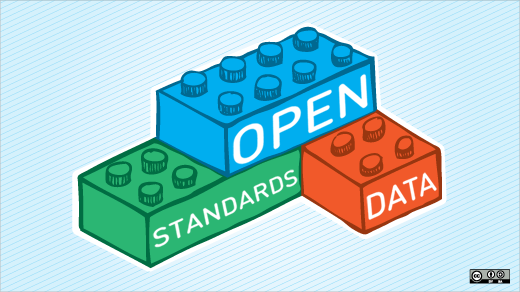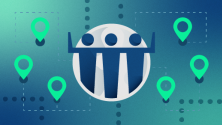Do you know about the Dutch Data Prize?
From the Research Data Netherlands (RDNL) website:
The Dutch Data Prize expresses appreciation for researchers or research groups that make an additional contribution to science by making their research data available for new or further research. There is a prize for the humanities and social sciences as well as a prize for the exact and technical sciences. The Dutch Data Prize is initiated by Research Data Netherlands (RDNL).
Judging
Three nominees per catergory were asked by the juries to present their examples of data-sharing. A couple of highlights were:
- Erasmus MC with their example of computer-aided diagnosis for dementia. Their dataset consists of 384 MRI scans of demented patients with Alzheimer's disease, patients with mild cognitive impairment (mild dementia), and healthy volunteers.
- The KNMI Climate Explorer, a collection of weather and climate data from many distributed sources that is easily accessible for downloading (as far as permitted by the data provider) in a uniform, widely accepted format.
It was a close call, according to the chairs of the juries, but decisive elements were the possibility to reuse, accessibility, and the potential for society to use the data.
Winners
The Dutch Data Prize for 2014 was awarded to the Dutch Song Database and DINED.
The Dutch Song Database was awarded in the Humanities & Social Sciences category, and DINED in the Exact & Technical Sciences category.
The Dutch Song Database is a collection of approximately 170,000 Dutch songs from the Middle Ages to the 20th century: love songs, folk songs and many more. The database contains the full song lyrics and sometimes the melodies too. Information such as first lines, tune identifications, stanza forms and genre indications can also be found. The jury was unanimous in its praise for the Dutch Song Database. Chairman professor Kees Aarts especially commended the versatile use of this database. "The database is already being used by many scholars in the digital humanities for literary, musical, religious, historical and ethnological research. Journalists, musicians and high school students also use the database a lot. This well-structured database is therefore a great asset for Dutch academic and cultural heritage."
DINED is a project initially aimed at industrial designers but also being used for other technical applications. This knowledge base of anatomy and statistics should rid the design sector of the misconception that there is such a thing as an average person. Professor Luyben emphasized the practical aspects and the beautiful interface of DINED. "The construction of the dataset is very practical, which greatly enhances its public value. The innovative character of the set will invite many scientists to perform further research. It is highly accessible for a wide audience because of the great care that has been taken in collecting, describing and unlocking the set."
The Dutch Data Prize is awarded by the Research Data Netherlands (RDNL), a collaborative partnership between 3TU.Datacentrum, DANS, and SURFsara. The awards were presented by professors Karel Luyben of Delft University of Technology and Kees Aarts of University of Twente, both in the Netherlands. The award session was one of the satellite events adjacent to RDA Plenary 4.







Comments are closed.